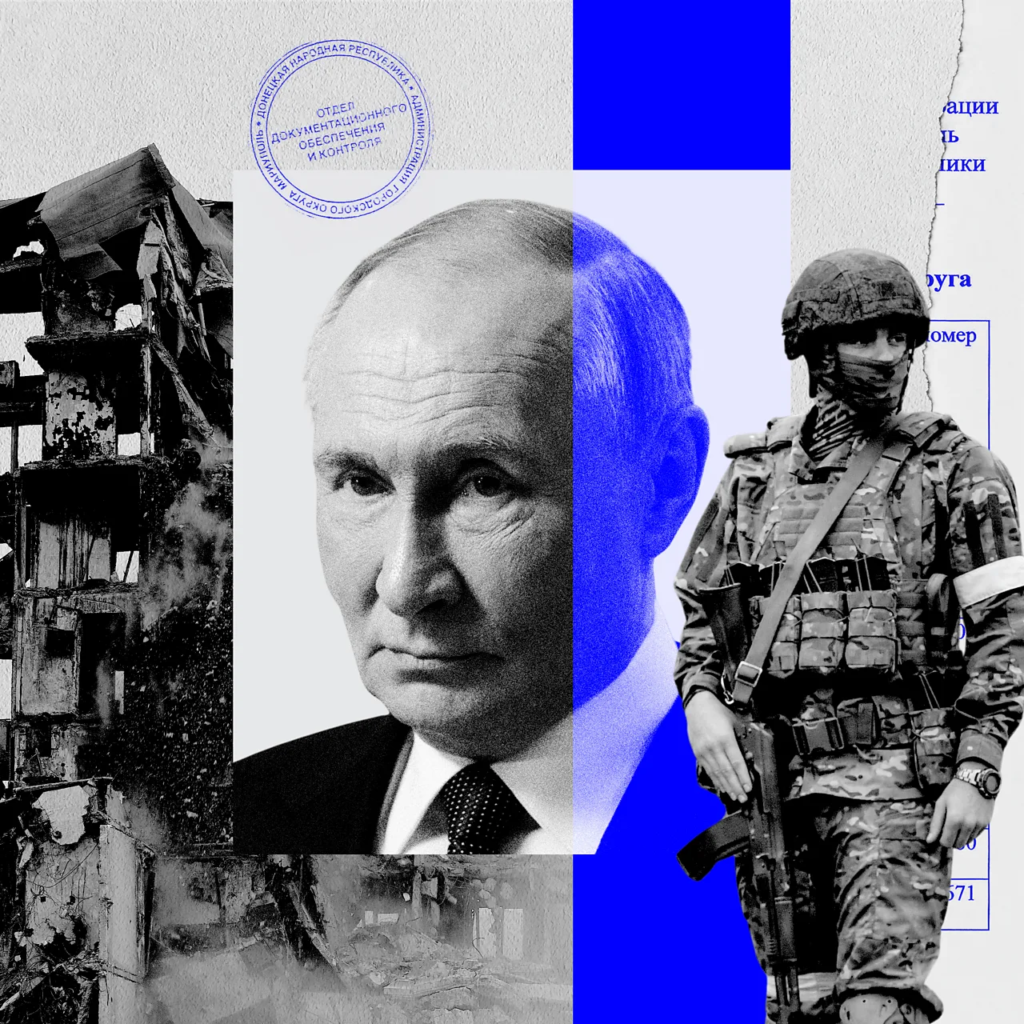Background: A City Transformed by War
Three years after Russian forces occupied Mariupol, new evidence reveals that Russia is systematically confiscating thousands of homes left behind by Ukrainians who fled the city during its brutal siege in 2022. A BBC Verify investigation identified at least 5,700 homes marked for seizure—properties owned by civilians forced to escape or who perished in the conflict.
Once home to over 425,000 people, Mariupol was devastated during the 86-day Russian siege, with over 93% of high-rise buildings destroyed or damaged. Human Rights Watch estimates over 8,000 civilian deaths, noting that the figure is likely a significant undercount.
Legalized Confiscation Under “Ownerless” Property Laws
The new Russian law treats properties as “ownerless” if they are not officially registered under Russian law. However, many of these homes still legally belong to Ukrainian citizens or the heirs of those who died in the war. Official documents from the Russian-installed Mariupol administration show that properties are first listed as having “signs of being ownerless.”
If no one claims ownership within 30 days—and only by appearing in person with a Russian passport or unspecified ID—the property is moved to an “ownerless” register. After another three months, the local government can seek a court order to transfer ownership to the city, and eventually to new residents, often Russian citizens or pro-Russian locals from the Donetsk People’s Republic.

Ukrainians Face Impossible Choices
To reclaim their property, Ukrainians must travel through Russia and undergo intense scrutiny by the FSB in a process known as “filtration.” Many are unwilling or unable to take the risk. As Halyna, a Mariupol refugee, put it, “This is legalized stealing of property.”
Diana Berg, another displaced Mariupol resident, described the process of reclaiming homes as “impossible.” She would need to send a relative through Russia, risking detainment and interrogation, simply to try and reclaim her family home.
Russification of Mariupol and International Law Violations
The home seizures are part of a broader strategy to “Russify” Mariupol. New military facilities, a naval academy, a war memorial, and a redesigned city coat of arms all point to Moscow’s intent to erase Ukrainian identity from the city. Streets are being renamed, and state-controlled construction projects are ongoing—even as housing shortages persist.
Legal experts argue the property seizures violate international law, including the Fourth Geneva Convention and Hague Convention. Professor Nehal Bhuta of Edinburgh University notes that these actions stem from “an unlawful annexation,” making them illegal under international legal standards.
Confusion, Fear, and Community Pushback
The opaque and inconsistent legal process has created widespread confusion among remaining residents. In online forums and Telegram chats, locals question how their homes ended up being declared “ownerless.” Many feel they are caught in an impossible situation: prove your loyalty to Russia or forfeit your home.
Despite the risk of speaking out, some Mariupol residents have voiced discomfort with being offered properties that once belonged to their neighbors. The issue has sparked rare discontent in an otherwise tightly controlled environment.
While President Putin endorsed the property seizure plan in December, its legality and ethics remain under international scrutiny. For now, Ukrainians like Halyna and Diana watch from afar as their homes—and their memories—are lost to bureaucracy and war.
Category: International Politics, Human Rights, Russia-Ukraine War, Real Estate & Property Law
Tags: Russia Ukraine war, Mariupol homes seized, property confiscation, ownerless homes Russia, Vladimir Putin laws, occupied Ukraine, Geneva Convention violations, human rights Ukraine, illegal annexation, Russian passport requirement









